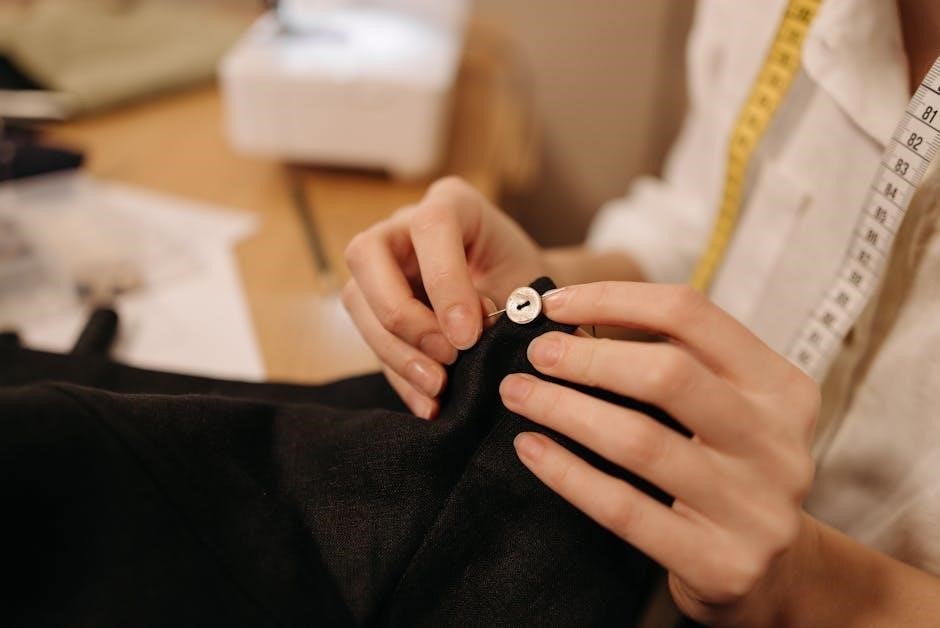defy tv guide
Discover the ultimate viewing experience with Defy TV Guide, your go-to destination for action-packed reality shows, documentaries, and thrilling entertainment. This guide helps you navigate Defy TVs diverse programming, ensuring you never miss your favorite shows or new releases. With features like on-demand availability and streaming options, it enhances your viewing experience, making it easy to stay entertained anytime, anywhere.
1.1 What is Defy TV?
Defy TV is a free-to-air digital television network launched on July 1, 2021, specializing in action-packed reality TV, documentaries, and thrilling entertainment. Owned by the Scripps Networks family, it targets men aged 25-54 with a diverse lineup of unscripted shows. The network is known for popular series like Pawn Stars, Storage Wars, and LivePD, offering a mix of drama, competition, and real-life adventures. Available on platforms like Roku and other streaming devices, Defy TV has quickly become a go-to destination for fans of high-energy content, providing fresh and exciting programming that captivates audiences with its dynamic storytelling and unpredictable entertainment.
1.2 Target Audience and Programming Focus
Defy TV primarily targets men aged 25-54, offering a lineup of action-packed reality shows and documentaries. Its programming focuses on high-energy content, blending competition, real-life adventures, and suspense. Popular shows like Pawn Stars, Storage Wars, and LivePD cater to viewers who enjoy drama, negotiation, and real-time law enforcement action. The network also features documentaries exploring history, mystery, and human experiences, ensuring a diverse appeal. By combining gripping storytelling with unpredictable outcomes, Defy TV ensures broad appeal, making it a go-to destination for fans of thrilling and engaging entertainment.
1.3 Importance of a TV Guide for Viewers
A TV guide is essential for viewers to navigate Defy TVs diverse programming effortlessly. It provides a clear schedule of daily and weekly shows, helping audiences plan their viewing experience. With features like on-demand availability and streaming options through platforms such as Roku, the guide ensures flexibility for viewers. It highlights new and upcoming programs, making it easier to discover fresh content. The guide also helps fans catch their favorite series like Pawn Stars and Storage Wars without missing episodes. This tool enhances the overall viewing experience, ensuring that audiences stay informed and entertained, making it a vital resource for Defy TV enthusiasts.
Defy TV Channel Guide
Your ultimate guide to Defy TVs diverse lineup, featuring action-packed reality shows, documentaries, and thrilling entertainment. Stay updated with the latest schedules and discover new favorites effortlessly.
2.1 How to Access the Defy TV Schedule
Accessing the Defy TV schedule is straightforward and convenient. Viewers can check local TV listings or use online resources to find the channel number in their area. For Roku users, the Defy TV schedule is easily accessible through the Roku app or website. Additionally, the network offers on-demand availability, allowing fans to watch their favorite shows like Pawn Stars and Storage Wars at their convenience. The guide provides detailed listings for today, tomorrow, and the next two weeks, ensuring you never miss an episode. With both live TV and on-demand options, Defy TV ensures a seamless and flexible viewing experience for all audiences.
2.2 Understanding the Channel Lineup
The Defy TV channel lineup is designed to cater to a diverse audience, offering a mix of action-packed reality TV, documentaries, and thrilling entertainment. The network primarily targets men aged 25-54, delivering high-energy content that includes popular shows like Pawn Stars, Storage Wars, and LivePD. Viewers can expect a blend of real-life adventures, competitions, and dramatic narratives that keep them engaged. The lineup also features unique storytelling and gripping series, ensuring there’s something for everyone. With a focus on dynamic programming, Defy TV provides a seamless transition between reality TV, documentaries, and action-packed entertainment, making it a go-to destination for fans of suspense and excitement.
2.3 Navigating the Guide for Optimal Viewing
Navigating the Defy TV Guide is designed to be user-friendly, ensuring viewers can easily find and plan their favorite shows. The guide offers a clear layout with daily and weekly schedules, allowing users to filter by genre, time, or show name. Viewers can set reminders for upcoming episodes and access detailed descriptions of each program. Additionally, the guide integrates seamlessly with streaming platforms like Roku, providing on-demand access to missed episodes. This feature-rich tool helps viewers maximize their entertainment experience, ensuring they never miss out on Defy TVs action-packed reality shows, documentaries, or live events. Its intuitive design makes it easy to explore and enjoy content effortlessly.
Popular Shows on Defy TV
Defy TV features hit shows like Pawn Stars, Storage Wars, and LivePD, offering a mix of reality TV, high-stakes auctions, and real-time law enforcement action that captivates audiences nationwide.
3.1 Pawn Stars: A Fan Favorite
Pawn Stars is a cornerstone of Defy TVs lineup, captivating audiences with its unique blend of history, negotiation, and family dynamics. Set in Las Vegas, the show follows the Harrison family as they assess and acquire rare artifacts, from vintage memorabilia to historical treasures. Viewers are drawn to the mix of expert appraisals, surprising discoveries, and the banter between Rick, Corey, and Richard “Old Man” Harrison. Each episode offers a fascinating glimpse into the world of pawnbroking, blending education with entertainment. The shows ability to balance drama, humor, and real-life stories has made it a fan favorite, ensuring its place as a must-watch on Defy TV.
3.2 Storage Wars: High-Stakes Auctions
Storage Wars brings the thrill of high-stakes auctions to Defy TV, captivating viewers with its fast-paced and competitive nature. The show follows a group of bidders as they compete to purchase abandoned storage units, hoping to strike gold. Each episode is filled with suspense, as participants rely on intuition and strategy to outbid rivals. The cast, including iconic figures like Darrell Sheets and Brandi Passante, adds personality and drama to the proceedings. From unexpected discoveries to heated rivalries, Storage Wars delivers non-stop excitement, making it a standout series in the reality TV genre and a must-watch for fans of competition and adventure.
3.3 LivePD: Real-Time Law Enforcement Action
LivePD delivers unfiltered, real-time law enforcement action, offering viewers a raw look into policing across America. Hosted by Dan Abrams, the show features live camera crews embedded with police departments, capturing high-stakes situations as they unfold. From routine traffic stops to intense pursuits, LivePD provides an unscripted glimpse into the challenges faced by law enforcement. The unpredictability of live events keeps audiences on the edge of their seats, while the commentary and analysis add depth to the unfolding drama. This gripping series is a must-watch for fans of real-time action and those interested in the complexities of policing in real life.
Defy TV Programming Highlights
Defy TV offers a dynamic mix of action-packed reality shows, gripping documentaries, and thrilling entertainment. Its diverse lineup ensures something exciting for every viewer, every day.
4.1 Reality TV and Documentaries
Defy TV excels in delivering captivating reality TV and documentaries, blending drama, suspense, and real-life stories. Shows like Pawn Stars and Storage Wars offer thrilling competitions and negotiations, while documentaries explore history, mysteries, and human experiences. These programs provide both entertainment and insight, making them a cornerstone of Defy TVs lineup. With a focus on authentic storytelling, the network ensures engaging content for fans of reality TV and documentary enthusiasts alike, offering something new and exciting every day.
4.2 Action-Packed Entertainment Options
Defy TV is a hub for thrilling action-packed entertainment, featuring shows like Pawn Stars, Storage Wars, and LivePD. These programs combine suspense, drama, and high-stakes competition, keeping viewers on the edge of their seats. Pawn Stars offers a glimpse into the world of unique artifacts and negotiations, while Storage Wars showcases intense bidding battles. LivePD delivers real-time law enforcement action, blending excitement with real-world drama. Defy TVs lineup ensures non-stop excitement, making it a go-to destination for fans of adrenaline-fueled entertainment. The networks diverse range of action-packed shows caters to a broad audience, guaranteeing something thrilling for everyone.
4.3 Daily and Weekly Schedule Highlights
Defy TV offers an exciting lineup of shows, with daily and weekly highlights catering to diverse viewer preferences. From thrilling reality TV to captivating documentaries, the schedule is packed with must-watch content. Popular shows like Pawn Stars and Storage Wars air regularly, while special episodes and marathons keep the entertainment fresh. Viewers can catch episodes of LivePD for real-time law enforcement action or explore historical mysteries in documentaries. The weekly schedule also features unique programming, such as Not So Pretty in Pink and Counting Cars, ensuring theres always something new to discover. With both daily and weekly highlights, Defy TV makes it easy to plan your viewing experience and stay entertained around the clock.
Viewing Options and Accessibility
Defy TV offers flexible viewing options, including streaming on Roku, on-demand availability, and online TV listings. These features ensure a seamless and accessible entertainment experience for all viewers.
5.1 Streaming Defy TV on Roku
Streaming Defy TV on Roku is a convenient way to enjoy your favorite shows. Simply download the Defy TV app from the Roku Channel Store and start watching. With Roku, you can access a wide range of Defy TVs action-packed reality shows, including Pawn Stars, Storage Wars, and LivePD. The platform offers a user-friendly interface, allowing seamless navigation through the channel lineup. Roku users can also take advantage of on-demand content, ensuring they never miss an episode. This streaming option provides flexibility, enabling viewers to watch their preferred shows anytime, making Defy TV easily accessible and enjoyable from the comfort of your home.
5.2 On-Demand Availability
Defy TV offers a convenient on-demand service, allowing viewers to watch their favorite shows anytime, anywhere. Through platforms like Roku and the Defy TV app, fans can access a wide library of content, including popular series such as Pawn Stars and Storage Wars. This feature eliminates the need to adhere to a strict broadcast schedule, providing ultimate flexibility for viewers. Whether you’re catching up on missed episodes or binge-watching your favorite series, Defy TVs on-demand availability ensures a seamless and enjoyable viewing experience. This service is particularly beneficial for those with busy schedules, making it easy to stay entertained on your own terms.
5.3 Checking TV Listings Online
Viewers can easily check Defy TV listings online through the official website or mobile app. This feature provides a detailed schedule for today, tomorrow, and the next two weeks, ensuring you never miss your favorite shows. The online guide is user-friendly, with search filters to find specific programs or genres. You can also set reminders for upcoming episodes, making it simple to plan your viewing experience. This convenient tool caters to both traditional TV watchers and modern streamers, offering flexibility and accessibility. By checking Defy TVs listings online, you can stay updated on the latest programming and enjoy a seamless entertainment experience anytime, anywhere.
Why Choose Defy TV?
Defy TV offers unique content, catering to diverse audience preferences with action-packed reality shows, documentaries, and thrilling entertainment. Its enhanced viewing experience and accessible streaming options make it a top choice for entertainment seekers.
6.1 Unique Content Offerings
Defy TV stands out with its unique blend of unscripted reality shows and documentaries, offering viewers exclusive access to action-packed entertainment. Shows like Pawn Stars, Storage Wars, and LivePD captivate audiences with their blend of drama, suspense, and real-life stories. The network’s focus on high-energy programming tailored for men aged 25-54 ensures a distinct viewing experience. By combining gripping competitions, historical explorations, and real-time law enforcement action, Defy TV delivers content that is both entertaining and unpredictable. This unique lineup solidifies its reputation as a go-to destination for fans of thrilling and authentic storytelling, making it a must-watch for those seeking fresh and exciting entertainment options.
6.2 Catering to Diverse Audience Preferences
Defy TV excels at catering to a wide range of viewer interests, offering a diverse lineup of reality TV, documentaries, and action-packed shows. From history enthusiasts captivated by Pawn Stars to auction lovers hooked on Storage Wars, the network provides something for everyone. Its programming also appeals to fans of real-time law enforcement drama through LivePD, ensuring a broad appeal. By blending unique storytelling, high-stakes competitions, and real-life adventures, Defy TV attracts a varied audience. This diversity in content makes it a go-to channel for viewers seeking entertainment that matches their individual preferences, ensuring a captivating experience for all.
6.3 Enhanced Viewing Experience
Defy TV delivers an enhanced viewing experience through its user-friendly channel guide and flexible streaming options. Viewers can seamlessly access live TV, on-demand content, and schedule updates across platforms like Roku. The guide provides detailed listings, ensuring fans never miss episodes of Pawn Stars or Storage Wars. On-demand availability allows for binge-watching or catching up on missed shows, offering ultimate convenience. With a focus on accessibility and modern entertainment needs, Defy TV ensures a smooth and enjoyable experience for all audiences, making it a top choice for those seeking high-quality, action-packed content anytime, anywhere.
Conclusion
Defy TV Guide is your ultimate destination for action-packed reality shows, documentaries, and thrilling entertainment. With its user-friendly interface and flexible viewing options, it ensures an unforgettable experience, keeping you informed and entertained.
7.1 Final Thoughts on Defy TV Guide
Defy TV Guide is an essential tool for viewers seeking a seamless entertainment experience. It offers a diverse lineup of action-packed reality shows, documentaries, and thrilling entertainment, catering to a broad audience. With its user-friendly interface and comprehensive schedule, the guide ensures you never miss your favorite programs. The availability of on-demand streaming and flexible viewing options enhances convenience. Whether you’re a fan of Pawn Stars, Storage Wars, or LivePD, Defy TV Guide provides unparalleled access to engaging content. Its commitment to quality and accessibility makes it a must-have resource for any entertainment enthusiast.
7.2 Encouragement to Explore the Channel
Exploring Defy TV is a must for fans of action-packed reality shows and thrilling entertainment. With its diverse lineup, including Pawn Stars, Storage Wars, and LivePD, the channel offers something for everyone. Tailored for men aged 25-54, Defy TV delivers high-energy content that captivates audiences. Its availability on platforms like Roku and its on-demand features make it easily accessible. Whether you’re a fan of real-time law enforcement drama or high-stakes auctions, Defy TV promises endless excitement. Dive into its dynamic programming and discover why it’s a go-to destination for those seeking suspense, adventure, and engaging storytelling. Start exploring today and uncover the thrill that awaits!





























